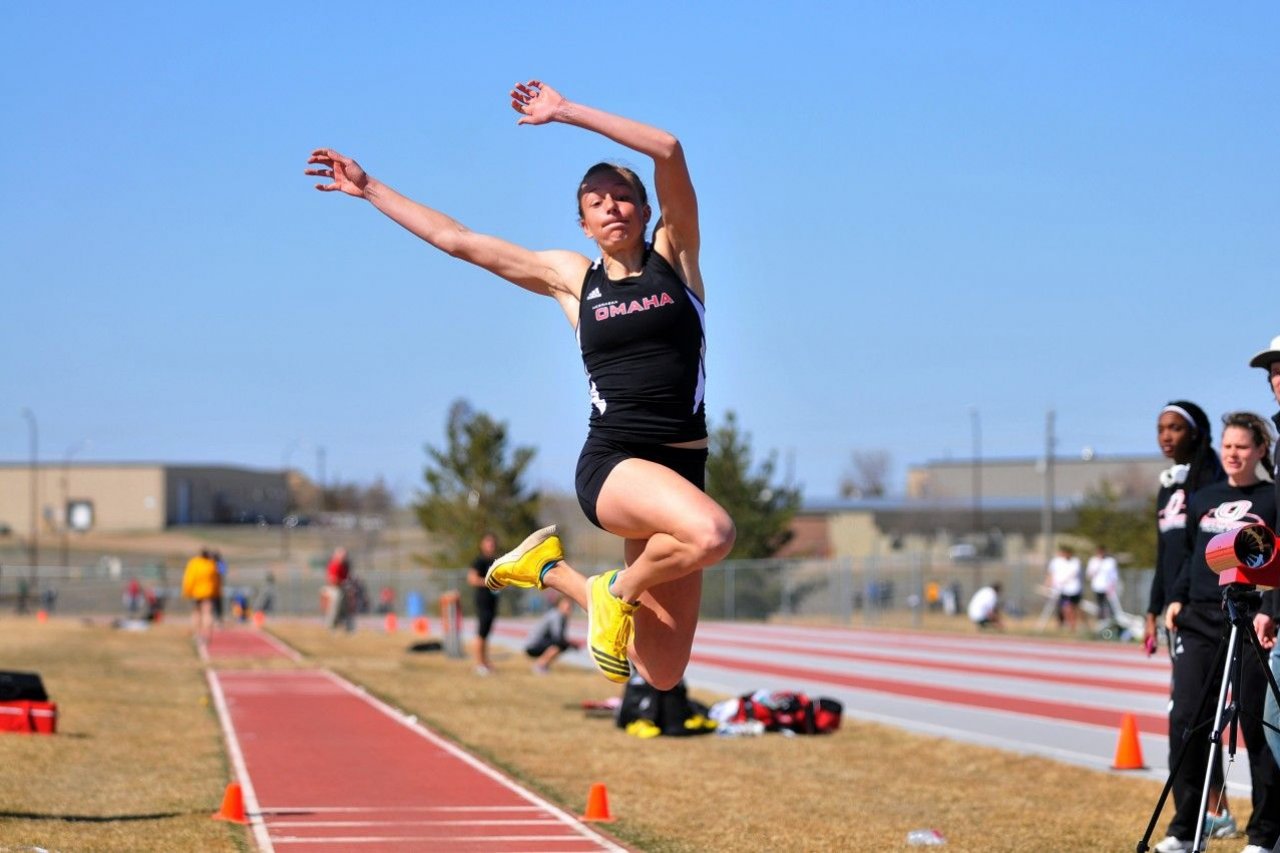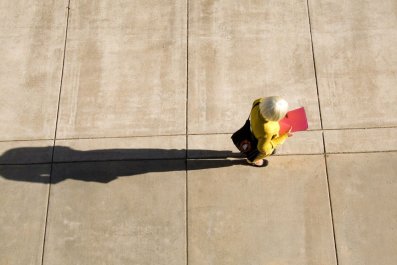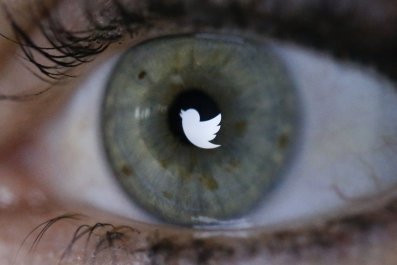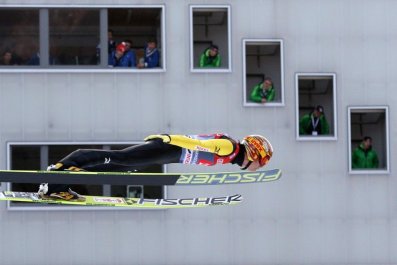As the country's top collegiate pentathlete, Sami Spenner has displayed exemplary prowess in five disciplines: the 60-meter hurdles, long jump, high jump, shot put and 800-meter run. The one event the senior at the University of Nebraska Omaha (UNO) desperately needs to improve in if she hopes to become an NCAA champion? Tilting at windmills.
Spenner owns the nation's top pentathlon score this season - which she achieved at a meet two weekends ago in Cedar Falls, Iowa - but she will not be invited to next month's NCAA Indoor Track & Field Championships in Albuquerque. Why? Because UNO is in the midst of reclassifying itself from a Division II program to a Division I program. Per NCAA rules, the school and its athletes are ineligible for postseason competition for four years. UNO is currently in the third year of its quadrennial purgatory.
"Sami could be on the cover of the NCAA manual as their ideal student-athlete," says her coach, Chris Richardson. "How do you tell her that she can't pursue her dream to become an all-American?"
Besides having the nation's top pentathlon score, a mark that would have been good enough for first place in last year's NCAA championships, Spenner has a 3.81 cumulative GPA, majoring in exercise science. The Columbus, Neb., native, who only ran one year of track in high school and walked onto the team at UNO as a freshman when it was a Division II program, never had designs on breaking the tape, be it finish-line or bureaucratic, at the time.
"I go back to when I walked on to a Division II team and just hoped to high jump," says Spenner. "Do they think I meant to do this?"
Spenner is an accidental all-American, or would be if the NCAA permitted her to compete. The top eight finishers at the championships, half the field, are designated as all-American. Since only five female collegians have ever bested Spenner's mark, it is reasonable to assume that she would finish in the top half of the field in Albuquerque.
Spenner is formally requesting a waiver from the NCAA while informally launching a personal campaign on high-volume track and field sites - UNO's mascot is, after all, a maverick - but those efforts will likely come to naught. She requested a waiver last year and the NCAA denied it, and her appeal, on the grounds that "the committee noted continued support within the NCAA membership of the requirement for reclassifying schools to complete the reclassification process prior to competing in Division I championships."
In other words, regardless of how talented an athlete or how assiduous a student Spenner may be - and she is both - is irrelevant. "It's the classic 'good kid' problem," says John Infante, a former NCAA employee who writes frequently on NCAA-related issues for athleticscholarships.net. "She's a good kid, but there are a lot of good kids. You cannot regulate 1,000 schools and nearly 500,000 athletes, as the NCAA endeavors to do, based on who's a good kid." In other words, no exceptions.
The quality and/or character of a student-athlete does not override a pre-existing NCAA guideline, even when, as happens in Spenner's case, the rule appears to be an affront to common sense.
Chris Radford, an NCAA spokesman, is empathetic in his support of Spenner but sanguine about her dilemma. "People ask me all the time how our rule book got so thick," he says. "It's the ifs and buts. If the NCAA were to grant this waiver request, it would only take a few minutes for a school to phone us and ask, 'Why can't our guy compete in the postseason, too?"
Spenner may be a former walk-on at a Division II school, but there is nothing small-time about her dominance in pentathlon. She's better than the best that schools such as LSU or Oregon or Florida have to offer. In the film Caddyshack, Judge Smails (Ted Knight) asks Ty Webb (Chevy Chase) how, if he does not keep score, he measures himself against other golfers. "By height," Webb replies. Spenner can easily measure herself versus other pentathletes: by time in the hurdles and the 800, by distance in the long jump and the shot put, and by height in the long jump. Unlike say, wrestling or tennis, her achievements in pentathlon need not be adjusted based on the quality of her competition.
"I actually think Sami would do better against elite competition at the nationals," says Richardson, a former decathlete at the University of Nebraska. "She's extremely competitive. Every time I've thought we've hit our ceiling with her, she's busted right through it. I used to say, 'Speed - you either have it or you don't.' She's made me question that maxim."
Last March, after the NCAA denied Spenner's waiver request, she sat in her dorm room following the results of the national championships online. Richardson sat in his apartment doing the same. "I'd see the results of an event," says Richardson, "and text her. 'Well, you could've won that.'"
"You know what?" Spenner would reply. "We should be there."
And, of course, she should.
One of the main reasons, if not the principal reason, the NCAA requires a four-year moratorium on transitioning schools from competing in the postseason is because it precludes the schools from sharing in the lucre that television money (read: the NCAA men's basketball tournament) provides. Think of that 90-day or six-month waiting period between the time you are hired and the moment your benefits kick in, extrapolated on a grander scale.
Reasonable? Certainly, except that indoor track and field is not a revenue-producing sport. The NCAA, in fact, would normally cover the cost of an individual such as Spenner traveling to compete in its championship meet, but Richardson says the school will surely offer to forgo that benefit in exchange for Spenner's invitation.
It won't matter.
The NCAA, on its homepage, has a "Fairness" link, beneath which are the following words: "No one is above the rules.... In order to ensure a fair system, the rules and the consequences have to apply to everyone. No exceptions."
As a pentathlete, Sami Spenner is exceptional. As a student-athlete at an NCAA member institution, however, she is by definition not exceptional "They take 16 girls for the nationals, and I should be one of them," says Spenner. "You would think that they want the top competitors there."






















